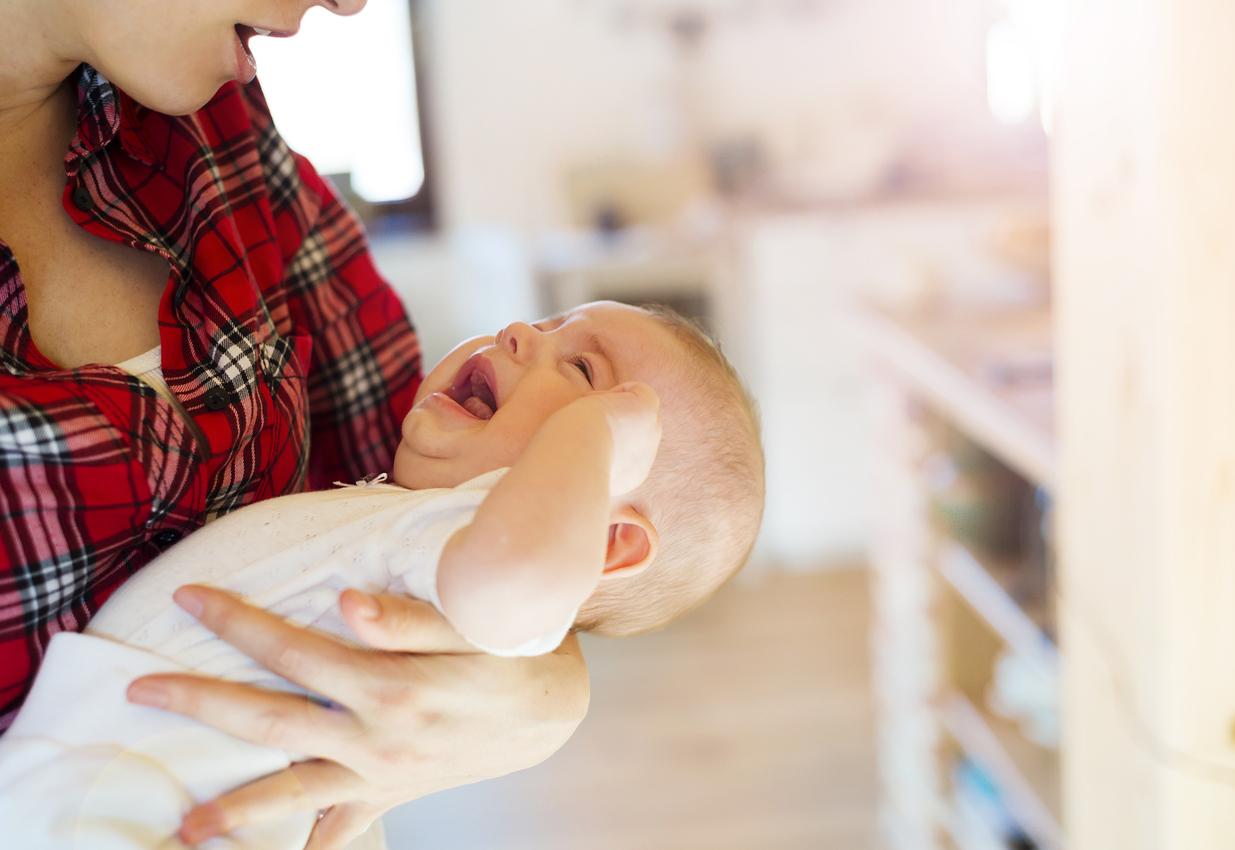On my first Mother’s Day, this is what I wish I’d known before I had my daughter
I haven’t had more than two and a half hours away from my baby in seven months. That’s as tiring as it sounds


On Sunday I will receive, as well as send, a Mother’s Day card for the first time. This year, when I write out my own mum’s message I’ll make sure it includes a more careful, more thoughtful, choice of words than I might have previously managed to muster up. Because although I’ve never forgotten to mark the occasion and give thanks for mother’s sacrifices in bringing me up, it’s not until this year – when my daughter will be seven months old – that I really understood quite what I was saying thanks for. Because nobody talks about it.
When you’re pregnant with your first child, you receive a lot of unsolicited advice (advice that apparently keeps on coming until your children are having families of their own, and whether you’re asking for it or not). Most of these nuggets of wisdom revolve around some elements of practical preparation, reminding you with a wry smile that dictatorships often use sleep deprivation as a form of torture for political prisoners, and warning you that you’re now effectively responsible for the moral and emotional welfare of the next generation. None of this is remotely useful and half of it just left me feeling even more terrified of the impending unknown.
Here, then, are the six things I really wish I’d been told before I had my daughter.
1. Worrying about labour is a waste of your precious remaining alone time
NCT courses spend more than 10 hours preparing you for what is likely to happen when you go into labour. Every pregnant woman asks a mum friend, in hushed tones, “so what’s it really like?” You may read a book on hypnobirthing or the benefits of labouring in water. All this might make you feel more prepared, in which case go for your life, but it’s a total waste of time.
However much you worry, there is nothing much you can do about the course of your labour other than ride it out and follow the midwives’ and doctors’ advice. Ultimately, it’s over very quickly (and I say this as a survivor of a 36-hour epic resulting in an assisted delivery). The bit that follows – actually being responsible for a tiny human life – is not, and yet the preparation you’re given for that in advance is minimal.
Time spent worrying about how to time contractions correctly would be better spent considering the possible challenges that will follow in the first four weeks after birth and where you can find help. Is there a breastfeeding group local to you? Who will you call if both parents fall sick and you need help looking after the baby? What kind of baby rash is completely normal and what requires an urgent trip to the doctor? How will you keep your baby safe for 10 minutes when you’re alone but need to have a shower? Which cafes or public spaces are parent friendly? (I ended up changing my baby on the concrete floor of a dirty toilet cubicle because I popped into a coffee shop I’d often visited before without ever noticing there were never any families choosing to have brunch there.)
2. It really doesn’t matter if you’ve never changed a nappy
Looking after a newborn, at least in practical terms, is a lot easier than you think. All they need is food, sleep, cleaning and cuddles. Most of that comes more naturally that I had ever expected. It’s not the work itself that causes the shock that is the first eight terrifying weeks of motherhood, it’s the sheer relentlessness of that work – especially if you choose to breastfeed. I haven’t had more than two and a half hours away from my baby in seven months. That’s as tiring as it sounds.
3. You will not be back to normal in six weeks
I hated pregnancy. I had complications including gestational diabetes, which meant I was famished on a low-carb diet throughout my third trimester when every other pregnant woman was gorging on ice cream. I had visual disturbances which prevented me from driving for the entire second half of my pregnancy. I was quite literally charting off the hours and days to my due date, convinced that my desperation for it all to be over with as soon as possible would be the best tonic for the newborn baby blues. Ha!
Yes, it was a relief to finally get the baby out and fall asleep on my back again. But nobody warned that birth recovery could be just as – and is often far more – difficult than pregnancy.
At the very least, it takes some months to repair physically from giving birth, whatever way you deliver; it can, and often does, take years. Some physiological changes will stay with you for the rest of your life. This is all completely normal. The only thing for it is to go easy on yourself and settle down on the sofa with your baby.
4. Everybody will try to diagnose you with post-natal depression
Looking after a newborn is hard and can be scary – but that doesn’t mean you’re necessarily depressed. But whenever I visited the health visitor or GP about any issue – from episiotomy pain to my peeling nipples to infant rashes – out comes the questionnaire. The first question is always the same: are you getting out every day. Yes, I am, because as I tried to explain to my doctor when I attended due to suspected mastitis (a breast infection), I definitely didn’t have PND I was just a new parent in a depressing situation.
Of course it’s great news that those working with new parents are alert to the needs of women whose mental health suffers badly after having a baby. But not every woman who cries in public in the first few months of parenting has clinical depression – it’s just tough being a first-time mum.
5. You can’t make any decisions until you meet the baby
I said I wasn’t going to use a dummy. Then my baby had colic. I said that I wanted to make sure I had time to myself by the end of the third month. I was still fighting to brush my teeth every morning after six months. I said I’d allow my baby to cry it out if she didn’t sleep through the night – but then I realised regular breastfeeding was as important for my health as hers. I made promises to myself that I couldn’t – and, frankly, didn’t want to – keep.
6. You won’t miss the things you anticipated
It’s the ultimate parenting cliché, but though the hours can feel interminable when you’re up for the fifth time in the night, the weeks and months shoot by at an unfathomable pace. There’s so little time to do anything apart from look after the baby that what you eventually do prioritise in those rare moments of peace tells you something fundamental about yourself. The things I thought I’d miss – more than one glass of wine, smart restaurants, long weekend lie-ins – have barely registered their absence. But when I hadn’t read more than a page of a book in six weeks, however, I started to feel my sense of self slip. I found a way to read while feeding and I now prioritise reading time over all other things outside childcare (including a clean house).
What nobody tells you about having a baby is that it does a sort of emotional Marie Kondo on your psyche: out goes the clutter, and what stays brings you joy. Motherhood whittles you away to nothing but your truest essence. I can’t recommend it highly enough.


Join our commenting forum
Join thought-provoking conversations, follow other Independent readers and see their replies